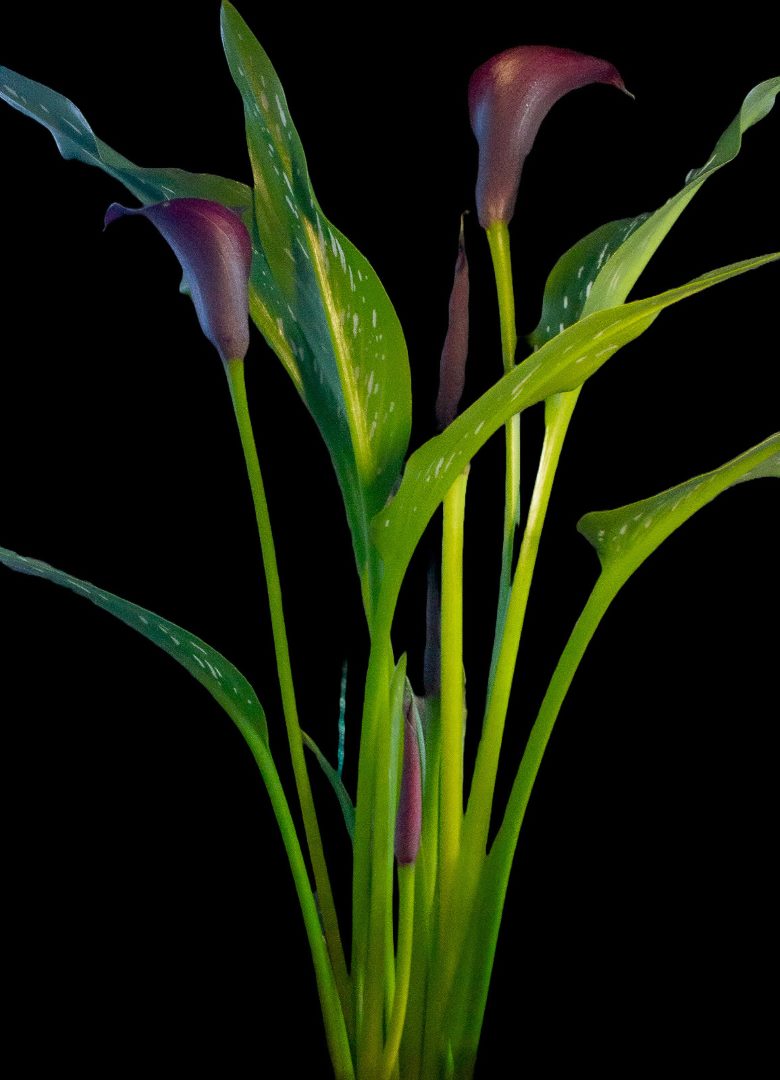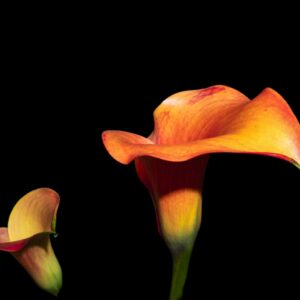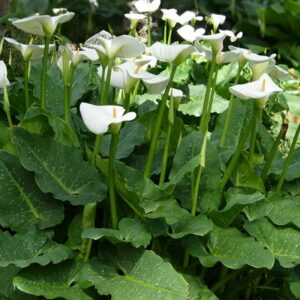Your cart is currently empty!
Discover the Alluring Black Calla Lily: A Comprehensive Guide

Introduction
The black calla lily, a unique and captivating member of the lily family, has captivated gardeners and flower enthusiasts alike with its enigmatic beauty. This striking flower, renowned for its deep, velvety petals, exudes an air of elegance and mystery. Whether you’re seeking to adorn your garden with its captivating presence or simply appreciate its distinctive charm, this comprehensive guide will delve into all aspects of the black calla lily, providing valuable information and tips.
Botanical Overview
Classification
The black calla lily, scientifically classified as Zantedeschia aethiopica ‘Nightingale,’ belongs to the Araceae family. It is a native of South Africa and is closely related to other species of callas, such as the familiar white calla lily (Z. aethiopica).
Physical Characteristics
The black calla lily is prized for its distinctive appearance. Its most prominent feature is its large, trumpet-shaped spathe, which resembles a funnel. The spathe typically ranges in color from deep purple to almost black, creating a striking contrast against its pale yellow spadix (the central reproductive structure). The leaves of the black calla lily are arrow-shaped and can grow up to 2 feet long.
Growing and Care
Soil Requirements
Black calla lilies thrive in well-drained, moist soil with a pH of 6.0-6.5. Avoid planting them in soggy or clay-like soil, as this can lead to root rot.
Sun Exposure
These lilies prefer partial shade to full shade. Avoid planting them in areas with intense sunlight, as this can scorch their leaves.
Water Requirements
Water your black calla lilies regularly, especially during hot and dry weather. Allow the soil to dry out slightly between watering.
Fertilization
Fertilize your calla lilies once a month during the growing season with a balanced liquid fertilizer. Stop fertilizing in late summer to allow the plants to prepare for dormancy.
Overwintering
In colder climates, black calla lilies may need to be overwintered indoors. Dig up the rhizomes in the fall and store them in a cool, dry place. Replant them in the spring after the last frost.
Propagation
Black calla lilies can be propagated by division or seed. Division is the preferred method, as it produces new plants quickly and easily. To divide, simply dig up the plant and separate the rhizomes into individual sections. Replant the divisions in well-drained soil.
Uses and Symbolism
Landscaping
Black calla lilies make an excellent addition to shady gardens, woodland borders, and water features. Their dark, velvety petals create a dramatic contrast against other foliage. They can also be grown in containers on patios or balconies.
Cut Flowers
Black calla lilies are long-lasting cut flowers that can add an element of drama and sophistication to floral arrangements. Their unique color and shape make them a popular choice for weddings and other special occasions.
Symbolism
In many cultures, the black calla lily is associated with mourning and remembrance. It is often used in sympathy bouquets and memorial gardens. However, in some cultures, it is also seen as a symbol of rebirth and renewal.
Troubleshooting
Yellowing Leaves
Yellowing leaves may indicate overwatering, underwatering, or nutrient deficiency. Check the soil moisture and adjust your watering schedule accordingly. Fertilize your plants if necessary.
Brown Tips on Leaves
Brown tips on the leaves can be a sign of sunburn or fluoride burn. Avoid planting your calla lilies in areas with intense sunlight or exposure to fluoride-treated water.
Pest and Diseases
Black calla lilies are generally pest-resistant, but they may occasionally be affected by aphids, thrips, or mealybugs. Treat infestations promptly with a suitable insecticide.
Conclusion
The black calla lily is a captivating and versatile plant that offers beauty and intrigue to any garden. By understanding its unique characteristics, growing requirements, and symbolism, you can successfully cultivate this enigmatic flower and enjoy its allure for years to come. Whether you choose to display its velvety blooms in your garden, incorporate them into floral arrangements, or simply admire their mystique, the black calla lily is sure to leave a lasting impression.








Leave a Reply